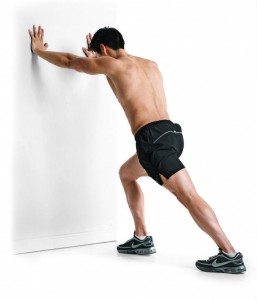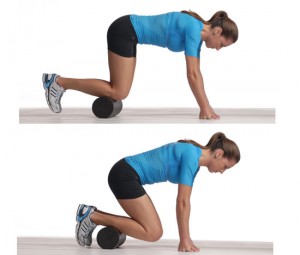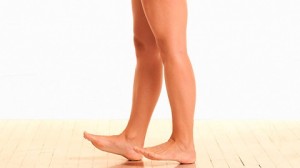With the good weather and marathon season fast approaching, we’ve started to see an increase in the number of patients in the clinic presenting with shin splints. While not often serious shin splints can be quite debilitating for athletes.
Shin splints, also known as medial tibial stress syndrome, is an overuse injury of the shin area. It is pain below the knee on either the outside or inside of the shin bones. In the early stage of shin splints pain is worse at the beginning of exercise and reduces during exercise. However if left untreated and the injury progresses, pain occurs with less activity and may even occur at rest.
For beginner runners shin splints can result due excessive training too soon or for experienced runners due to a change in mileage, surface or speed.
Treatment for Shin splints
Evidence shows that rest is an important treatment in the acute stage of shin splints. All aggravating activities should be stopped for approximately 1-6 weeks until pain free. NSAIDs can be taken for pain relief. Ice should be applied to the affected area post exercise for 10 minutes. Low impact exercises such as swimming, cross trainer and stationary bike can replace running during this stage.
Following this your training will need to be modified. When returning to running its important to gradually increase your distance ie commence with fast walking progressing to running as able. Uneven, very firm surfaces and hill running should be avoided. Proper-fitting shoes with adequate shock absorption should be worn and replaced every 250-500 miles. Orthotics may be appropriate for individuals with over-pronated feet.
Stretching and strengthening exercises are important in the treatment of shin splints. Having completed a full assessment, your Chartered Physiotherapist can advise you on appropriate exercises for you. Below are 3 examples of exercises that are effective in treating shin splints.
Calf stretching
Inadequate stretching of the calf muscles can result in shortened calves and altered biomechanics in the leg contributing to the cause of your shin splints. Stretches for the calves should be done pre and post training.
Place both feet pointing forward, keep the front knee bent and back knee straight and lean your hips forward. Hold each stretch for 30 seconds and repeat 3 times on each leg.
Foam rolling
In a four point position slowly roll up and down the muscle of the front of the shin. Focus on any particularly tender areas, moving slower over these points. This technique can also be done with a tennis ball. Do x 2-4 mins per shin.
Heel walking
Weak shin muscles( tibialis anterior) can often contribute to the cause of shin splints. This muscles main function is to dorsiflex the ankle and so strengthening can help prevent/treat shin splints. Complete heel walking for 3-5 minutes, twice daily.
If your shin splints are persisting after trying above exercises, call us at 086 3582911 for a full assessment with a Chartered Physiotherapist. 🙂



